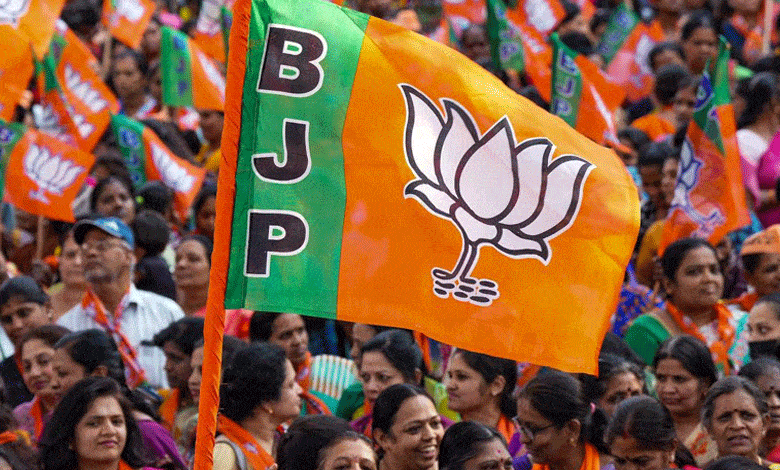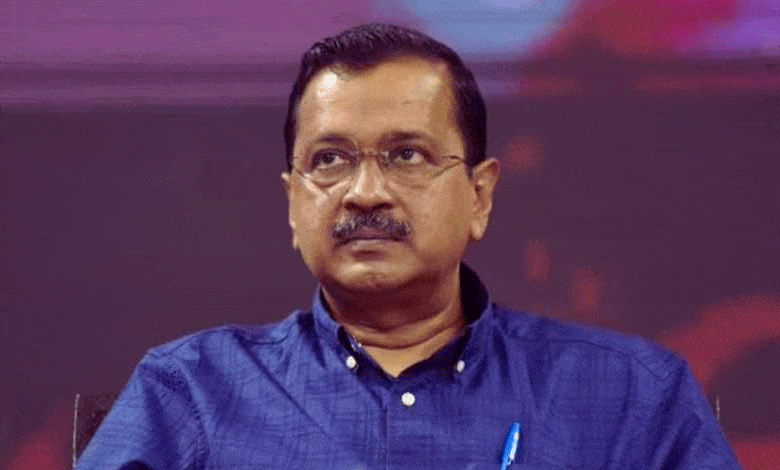Arvind Kejriwal Writes Letter to RSS Chief Mohan Bhagwat, Raises Questions on BJP’s Politics
Arvind Kejriwal writes a letter to RSS chief Mohan Bhagwat, raising questions about the BJP’s recent actions, including vote manipulation and misuse of central agencies. Kejriwal seeks clarity on the party’s impact on democracy and its relationship with the RSS.

New Delhi: Arvind Kejriwal, the national convenor of the Aam Aadmi Party (AAP), has written an open letter to Rashtriya Swayamsevak Sangh (RSS) chief Mohan Bhagwat, raising several questions regarding the politics of the Bharatiya Janata Party (BJP).
Table of Contents
The letter, sent on January 1st, 2025, comes amid escalating tensions between AAP and the BJP, with Kejriwal questioning the RSS’s support for certain actions carried out by the BJP leadership in recent days.
Key Questions Raised by Kejriwal to RSS Chief Mohan Bhagwat
In the letter, Kejriwal outlined several significant concerns regarding the BJP’s actions, asking Bhagwat to clarify the RSS’s stance on various issues. The questions included:
- BJP’s Wrongdoings: Kejriwal asked whether the RSS supports the wrongdoings of the BJP in recent days, including the party’s alleged vote-buying practices and manipulation of voter lists.
- Support for Vote Buying: He specifically inquired whether the RSS condones the BJP’s alleged involvement in distributing money for votes and whether it supports the practice of “vote buying,” which he believes undermines the democratic process.
- Voter Manipulation and Democracy: Kejriwal raised concerns over the BJP’s alleged attempts to manipulate voter lists, especially targeting Dalit and Purvanchali communities. He questioned whether the RSS finds such actions acceptable in the context of Indian democracy.
- Impact on Democracy: The AAP leader asked whether the RSS believes that the BJP’s actions are detrimental to the democratic fabric of the country and whether the weakening of democracy through such practices is justified.
Allegations of Voter List Manipulation: “Operation Lotus”
The letter follows a series of scathing attacks by Kejriwal on the BJP, particularly accusing the party of manipulating voter lists to influence election outcomes. On December 29, 2024, Kejriwal alleged that the BJP had been involved in “Operation Lotus,” a covert operation to manipulate voter lists in the Shahdara and New Delhi constituencies. Kejriwal claimed that the BJP had submitted applications to delete thousands of voters from the list, particularly targeting certain communities, and replace them with new voters.
In his own New Delhi constituency, Kejriwal alleged that BJP leaders attempted to delete around 5,000 voters and add approximately 7,500 new names, which he claimed represented a substantial 12% manipulation of the voter list. He accused the BJP of blatantly tampering with the electoral process, questioning the legitimacy of elections if such manipulation continued.
BJP’s Response to Kejriwal’s Allegations
The BJP has vigorously denied Kejriwal’s allegations, accusing AAP of adding illegal votes to the voter lists. BJP spokesperson Manjinder Singh Sirsa responded by claiming that AAP had included illegal voters, particularly from Bangladesh and Myanmar, in the voter lists. Sirsa further alleged that AAP had registered fake votes for infiltrators living in certain areas, and he vowed to remove any such illegal votes.

Sirsa’s remarks also extended to accusations that AAP was harboring infiltrators for political gain, offering financial support, shelter, and other benefits to illegal immigrants in exchange for votes. He stated that the BJP would remove all such illegal votes and ensure that no foreign national would be allowed to vote in Delhi.
Kejriwal’s Concerns Over BJP’s Approach to Politics
This is not the first time Kejriwal has addressed concerns regarding the BJP’s political strategies. In September 2024, he wrote a similar letter to Mohan Bhagwat, raising five key questions about the BJP’s leadership and practices. Some of the major points in that letter included:

- Prime Minister Narendra Modi’s Retirement Age: Kejriwal asked whether Prime Minister Modi, like other veteran BJP leaders L.K. Advani and Murli Manohar Joshi, would be expected to retire once he reached the age of 75, in line with the BJP’s supposed retirement policy for its senior leaders.
- Misuse of Central Agencies: Kejriwal expressed concern over the alleged misuse of central agencies like the Enforcement Directorate (ED) and the Central Bureau of Investigation (CBI) by the BJP-led central government to destabilize opposition-led governments. He questioned whether such actions align with the values promoted by the RSS.
- BJP’s Relationship with RSS: In his letter, Kejriwal also referenced a controversial statement by BJP President J.P. Nadda during the 2024 Lok Sabha elections, in which Nadda allegedly claimed that the BJP no longer needed the RSS. Kejriwal asked Bhagwat for his thoughts on this statement, raising questions about the RSS’s role and influence over the BJP.
Kejriwal’s Concerns About the Future of Indian Democracy
Throughout his letters and public statements, Kejriwal has expressed growing concern about the direction in which the BJP and its allies are taking the country. He believes that the practices employed by the BJP are not only detrimental to the democratic process but also harmful to the values that India holds dear. Kejriwal has repeatedly emphasized that such actions are weakening the very foundations of democracy, and he has called on the RSS to play a more active role in ensuring that the BJP remains aligned with democratic principles.
A Call for Clarity and Accountability
As the political landscape in India becomes increasingly polarized, Arvind Kejriwal’s letters to RSS Chief Mohan Bhagwat highlight key concerns about the BJP’s approach to politics, electoral integrity, and democratic values.
With both the BJP and AAP facing off in the coming state and national elections, the questions raised by Kejriwal are likely to continue fueling debates over the future of Indian politics and the role of organizations like the RSS in shaping the country’s political discourse.
Kejriwal’s calls for answers from Bhagwat and his continued scrutiny of the BJP’s actions suggest that the AAP leader is determined to hold the ruling party accountable for any actions he believes undermine the democratic process. As the next elections approach, these issues are expected to remain at the forefront of political discussions in India.
